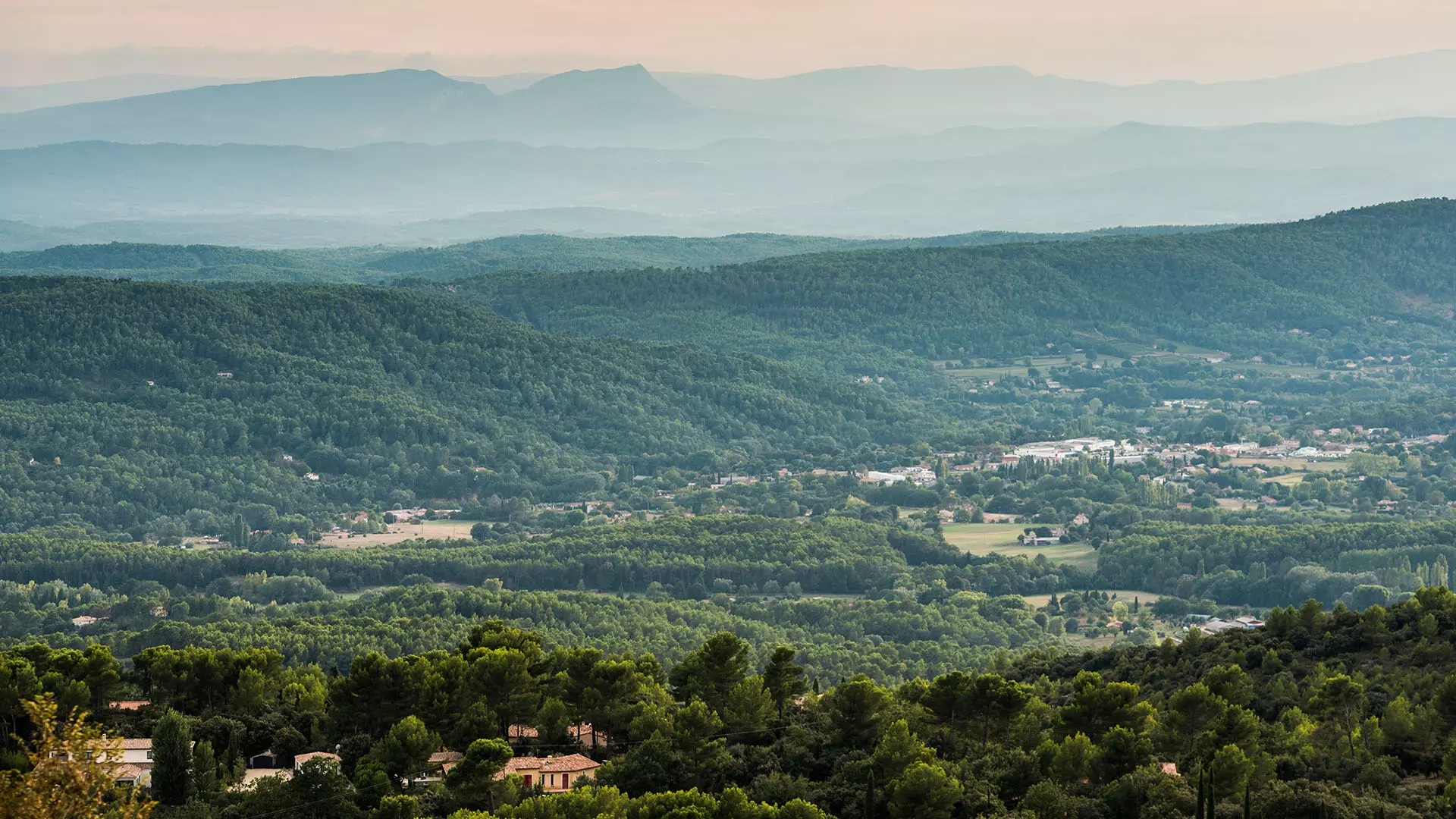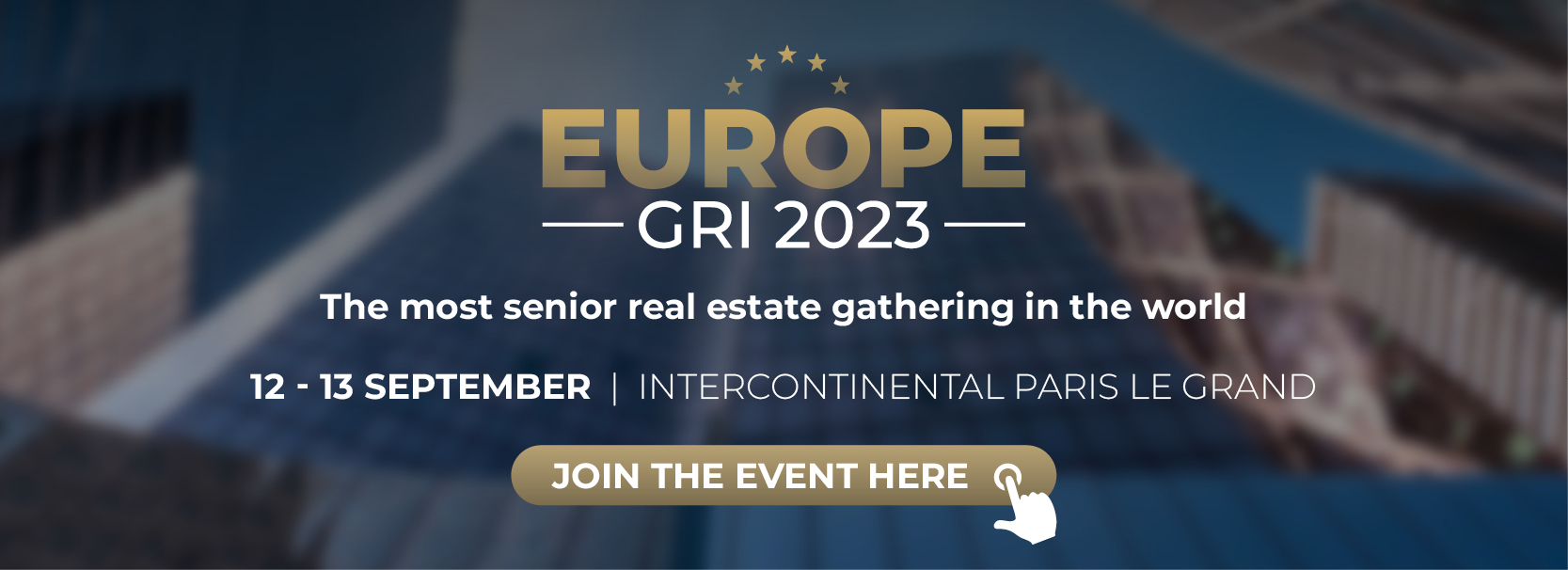 Givaga | envato
Givaga | envatoGeothermal Innovations in French Real Estate
Exploring the Financing, Feasibility, and Data Challenges
July 4, 2023Real Estate
Written by Rory Hickman
As the world shifts towards a more sustainable future and ESG considerations become increasingly stringent, the integration of renewable energy sources in real estate has become a central priority. Among these alternatives, geothermal energy has emerged as a promising solution for meeting the heating and climatization needs of buildings.
Within the realm of French real estate, the utilisation of geothermal energy has sparked extensive discussions. This was especially true at the recent Geothermal Innovations GRI Club Meeting, co-hosted by Accenta, where real estate leaders elaborated on possibilities for implementing such systems and identified financing, technical feasibility, and data collection as three pivotal considerations going forward. Geothermal capacity is estimated to reach 100 TWh by 2040, contributing to the 2050 carbon neutrality goal. (Photo: duallogic | envato)
Geothermal capacity is estimated to reach 100 TWh by 2040, contributing to the 2050 carbon neutrality goal. (Photo: duallogic | envato)
Medium-grade geothermal energy serves both heating and hot water needs while also offering the potential for smaller-scale electricity generation. Binary Cycle power plants are commonly associated with this category. They employ a secondary fluid with a lower boiling point, which is heated by the medium-temperature geothermal fluid. The resulting vapour powers a turbine, producing electricity.
For large-scale electricity generation, deep geothermal energy takes the stage. This category provides both electricity and heating benefits. Flash Steam power plants are linked to deep geothermal systems with high-temperature resources and sufficient pressure. In these power plants, the high-pressure geothermal fluid, typically water or brine, is rapidly expanded to lower pressure, which causes it to flash into steam. The steam is then used to drive turbines, which generate electricity.
Currently, geothermal solutions account for only 1% of final heat consumption in France. However, in February 2023, the French Ministry of Energy Transition introduced a 6-point geothermal action plan, outlining ambitious targets and strategies to enhance geothermal energy adoption and utilisation in the country’s metropolitan regions.
Geothermal heat production capacity is estimated to reach 100 TWh by 2040, contributing to the 2050 carbon neutrality goal. The plan’s six key strategies are split evenly between focusing on surface and deep geothermal energy.
For surface geothermal, the plan emphasises strengthening drilling capacity, refining regulations, promoting geothermal heat pump installations, and supporting geothermal professionals. In the realm of deep geothermal, the aim is to identify and enhance under-utilised deep aquifers, improve subsurface knowledge, raise awareness, designate geothermal specialists, and encourage new projects and financial arrangements.

Balancing public and private investments is a key objective, with the aim being to foster a sustainable financial framework that promotes geothermal integration in the real estate sector.
There was also a strong emphasis on the need to obtain relevant data to enable funding for energy-efficient solutions in new developments, as well as building acquisition and renovation endeavours. Bridging the information gap will be crucial for stakeholders to make informed investment decisions and ensure the viability of geothermal projects.
Establishing collaboration between the government and private sector stakeholders will be essential in efforts to create an equitable financing ecosystem. This approach could incentivise widespread adoption of geothermal energy solutions in real estate, contributing to energy efficiency goals and environmental sustainability.
Developing innovative solutions that can effectively harness geothermal energy while adapting to the unique constraints of urban landscapes will be a necessity going forward. This includes the need to overcome space limitations and minimise the disruptions that traditional drilling methods could cause to urban infrastructure.
To address this challenge, a range of different approaches are being explored to enable the efficient utilisation of geothermal energy in urban settings. These solutions encompass shallow geothermal systems that tap into the stable temperatures near the surface, as well as innovative methods like vertical boreholes or horizontal ground loops that maximise the utilisation of available space.
With buildings currently accounting for 43% of French energy usage, the tertiary sector decree establishes important guidelines and targets aimed at reducing energy consumption in properties within the sector. To achieve these goals, the regulation proposes actions such as transforming energy use in tertiary buildings and updating systems and equipment to improve energy efficiency.
However, concerns regarding the limited accessibility of valuable information must be addressed. The lack of available data from various sources hinders informed decision-making and poses obstacles to achieving sustainable growth within the sector.
Enhancing data collection practices will be essential in order to meet regulatory requirements and provide the necessary insights for sustainable development. Implementing Building Management Systems is one possibility for enhancing data collection and analysis to facilitate compliance with ESG standards.
Improved access to comprehensive and credible data will empower stakeholders to identify areas for improvement, measure environmental impact, and design tailored strategies to enhance energy efficiency and reduce carbon footprints.

Overcoming challenges related to these aspects will be pivotal in unlocking the benefits of geothermal energy and fostering a greener, more resilient future for the real estate sector.
As sustainability becomes an increasingly influential factor in tenant preferences, the successful adoption of geothermal energy can position buildings as attractive options for socially responsible investors, ensuring a positive impact on both the environment and the bottom line.
To stay abreast of how this complex situation develops, don’t forget to register for Europe GRI 2023, taking place on September 12-13 in Paris.

As the world shifts towards a more sustainable future and ESG considerations become increasingly stringent, the integration of renewable energy sources in real estate has become a central priority. Among these alternatives, geothermal energy has emerged as a promising solution for meeting the heating and climatization needs of buildings.
Within the realm of French real estate, the utilisation of geothermal energy has sparked extensive discussions. This was especially true at the recent Geothermal Innovations GRI Club Meeting, co-hosted by Accenta, where real estate leaders elaborated on possibilities for implementing such systems and identified financing, technical feasibility, and data collection as three pivotal considerations going forward.
 Geothermal capacity is estimated to reach 100 TWh by 2040, contributing to the 2050 carbon neutrality goal. (Photo: duallogic | envato)
Geothermal capacity is estimated to reach 100 TWh by 2040, contributing to the 2050 carbon neutrality goal. (Photo: duallogic | envato)Geothermal Goldmine?
Geothermal energy comes in various forms, with the approach to each one being adapted to serve specific purposes. Low-temperature geothermal energy focuses on providing heating and hot water. This system relies on heat pumps or direct-use applications to extract heat from the ground and provide warmth for residential, commercial, or industrial buildings.Medium-grade geothermal energy serves both heating and hot water needs while also offering the potential for smaller-scale electricity generation. Binary Cycle power plants are commonly associated with this category. They employ a secondary fluid with a lower boiling point, which is heated by the medium-temperature geothermal fluid. The resulting vapour powers a turbine, producing electricity.
For large-scale electricity generation, deep geothermal energy takes the stage. This category provides both electricity and heating benefits. Flash Steam power plants are linked to deep geothermal systems with high-temperature resources and sufficient pressure. In these power plants, the high-pressure geothermal fluid, typically water or brine, is rapidly expanded to lower pressure, which causes it to flash into steam. The steam is then used to drive turbines, which generate electricity.
Currently, geothermal solutions account for only 1% of final heat consumption in France. However, in February 2023, the French Ministry of Energy Transition introduced a 6-point geothermal action plan, outlining ambitious targets and strategies to enhance geothermal energy adoption and utilisation in the country’s metropolitan regions.
Geothermal heat production capacity is estimated to reach 100 TWh by 2040, contributing to the 2050 carbon neutrality goal. The plan’s six key strategies are split evenly between focusing on surface and deep geothermal energy.
For surface geothermal, the plan emphasises strengthening drilling capacity, refining regulations, promoting geothermal heat pump installations, and supporting geothermal professionals. In the realm of deep geothermal, the aim is to identify and enhance under-utilised deep aquifers, improve subsurface knowledge, raise awareness, designate geothermal specialists, and encourage new projects and financial arrangements.

Questions were raised about the viability of utilising geothermal technology in France’s urban environments (Photo: AntonioGravante | envato)
Financing the Future
One crucial point of contention in the discussions revolved around the financing of geothermal energy projects. Participants raised questions about the government's role in funding these initiatives and the appropriate distribution of financial support.Balancing public and private investments is a key objective, with the aim being to foster a sustainable financial framework that promotes geothermal integration in the real estate sector.
There was also a strong emphasis on the need to obtain relevant data to enable funding for energy-efficient solutions in new developments, as well as building acquisition and renovation endeavours. Bridging the information gap will be crucial for stakeholders to make informed investment decisions and ensure the viability of geothermal projects.
Establishing collaboration between the government and private sector stakeholders will be essential in efforts to create an equitable financing ecosystem. This approach could incentivise widespread adoption of geothermal energy solutions in real estate, contributing to energy efficiency goals and environmental sustainability.
Overcoming Urban Uncertainty
The technical feasibility of implementing geothermal energy in urban areas, especially densely populated city centres, is a tent-pole issue in metropolitan France. Questions were raised regarding the viability of utilising geothermal technology in environments where there is a lack of readily available locations for drilling probes.Developing innovative solutions that can effectively harness geothermal energy while adapting to the unique constraints of urban landscapes will be a necessity going forward. This includes the need to overcome space limitations and minimise the disruptions that traditional drilling methods could cause to urban infrastructure.
To address this challenge, a range of different approaches are being explored to enable the efficient utilisation of geothermal energy in urban settings. These solutions encompass shallow geothermal systems that tap into the stable temperatures near the surface, as well as innovative methods like vertical boreholes or horizontal ground loops that maximise the utilisation of available space.
Data Deficiency
The significance of robust data collection in fostering environmental accountability has become an increasingly prominent issue in real estate. Participants recognized the pivotal role of reliable and credible data in meeting regulatory obligations, including those outlined in taxonomy and the tertiary sector decree (Décret Tertiaire).With buildings currently accounting for 43% of French energy usage, the tertiary sector decree establishes important guidelines and targets aimed at reducing energy consumption in properties within the sector. To achieve these goals, the regulation proposes actions such as transforming energy use in tertiary buildings and updating systems and equipment to improve energy efficiency.
However, concerns regarding the limited accessibility of valuable information must be addressed. The lack of available data from various sources hinders informed decision-making and poses obstacles to achieving sustainable growth within the sector.
Enhancing data collection practices will be essential in order to meet regulatory requirements and provide the necessary insights for sustainable development. Implementing Building Management Systems is one possibility for enhancing data collection and analysis to facilitate compliance with ESG standards.
Improved access to comprehensive and credible data will empower stakeholders to identify areas for improvement, measure environmental impact, and design tailored strategies to enhance energy efficiency and reduce carbon footprints.

Overcoming these challenges will be pivotal in unlocking the benefits of geothermal energy (Photo: MatthewWilliams-Ellis | envato)
The Heat is On
The integration of geothermal energy holds significant potential for aiding in the sustainable development of French real estate. Through comprehensive discussions, industry stakeholders explored key facets such as financing mechanisms, technical feasibility, and data collection.Overcoming challenges related to these aspects will be pivotal in unlocking the benefits of geothermal energy and fostering a greener, more resilient future for the real estate sector.
As sustainability becomes an increasingly influential factor in tenant preferences, the successful adoption of geothermal energy can position buildings as attractive options for socially responsible investors, ensuring a positive impact on both the environment and the bottom line.
To stay abreast of how this complex situation develops, don’t forget to register for Europe GRI 2023, taking place on September 12-13 in Paris.
